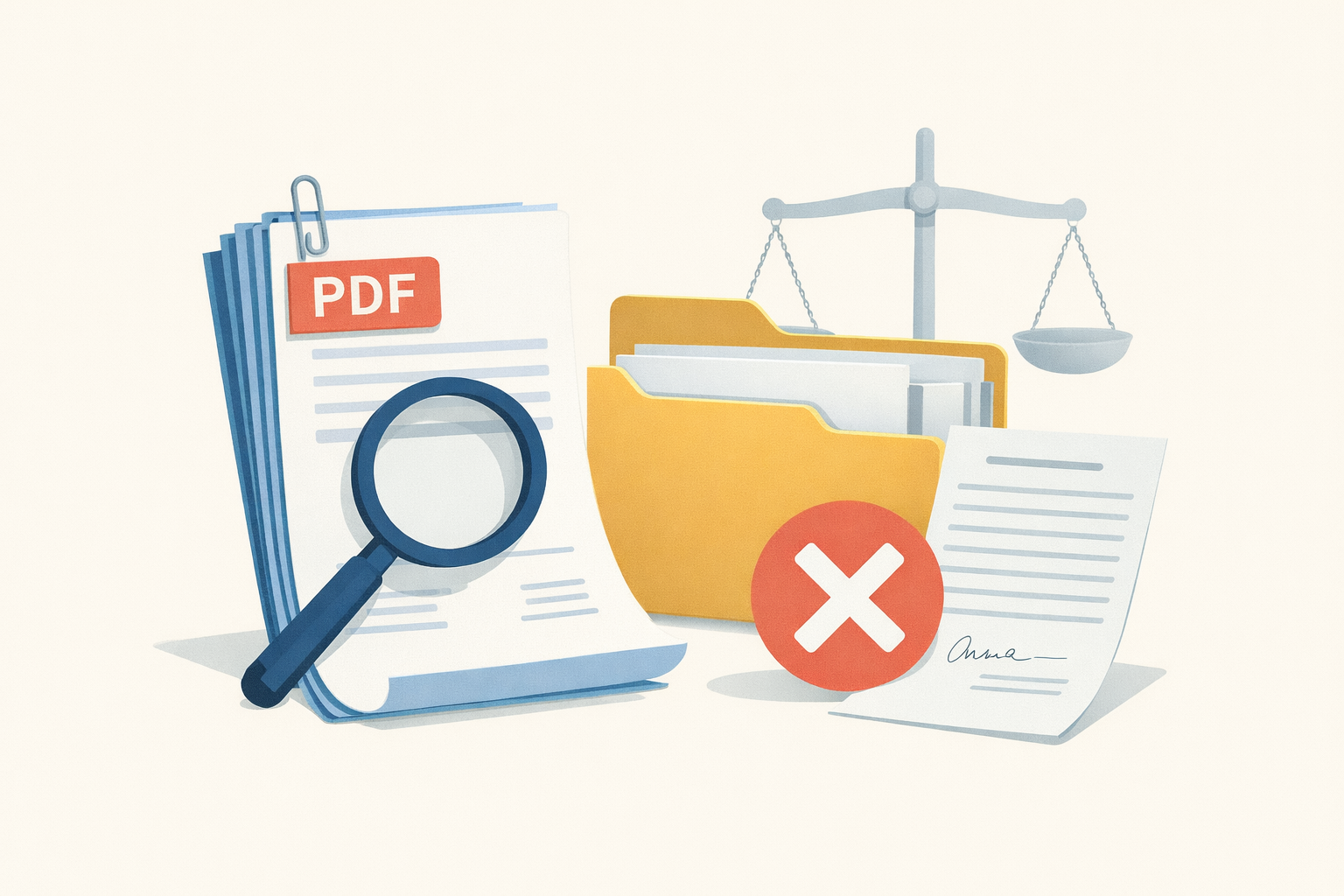To make the role of in-house teams evolve or to keep the status quo? To expand your in-house legal team or to keep it small and nimble? To get more leverage out of in-house counsel by implementing efficiency tools or by expanding their skill sets and areas of influence?
These are questions all companies small or big face at some point—and the answers are not always straightforward.
In-house legal teams are increasingly becoming strategic business drivers. In fact, research shows that 40% of companies that have general counsel in top management make more accurate forecasts and drastically reduce legal risks.
But too often questions around the contribution of in-house teams to business goals, their primary role, and the skills they need to remain essential as organizations grow tend to arise. These questions become especially crucial when determining whether you should expand your in-house team or not.
In this article, we’ll cover:
- The evolving role of in-house counsel and what can in-house legal teams bring to the table
- The key skills in-house teams should have to become irreplaceable and play a central role in a company’s growth
- The factors that determine whether you should expand your in-house team
- Tech tools vs new hires: What you actually need
Ready? Let’s dive right in!
Present and Future Role of In-House Counsel
Traditionally, in-house counsel has been deemed more or less valuable on the sole basis of their legal acumen. Until recently, in-house teams’ responsibilities were practically reduced to providing legal advice and drafting and reviewing agreements.
Today, that’s no longer the case—at least for the most innovative organizations.
The role of in-house counsel has evolved to become more of a strategic business partner that supports the organization, gets involved in strategic decisions by providing legal advice, works to improve processes, and assists in navigating complex challenges—all while being held accountable for their actions and decisions.
By becoming an integral part of the executive team, in-house teams are able to create and implement solutions that go beyond providing legal advice. They get empowered to turn into decision-drivers rather than mere legal consultants.
And they’re in a privileged position to do so. By understanding the unique needs of the business, the internal politics, and workflows, as well as industry trends and legal requirements, they’re better suited to know what decisions and strategies work for their business as opposed to outside counsel. Not surprisingly, many in-house teams are working to shift their relationship with outside counsel, turning OC into a partner that works hand in hand with them to meet business and legal goals.
Another aspect that will continue to develop the role of in-house teams is their incentive to focus on the bigger picture, as opposed to an individual matter. This enables them to think strategically towards business goals in areas like reducing OC spend, bringing more work in house, and streamlining processes with technology whenever possible.
The role of in-house counsel has evolved to become more of a strategic business partner that supports the organization, gets involved in strategic decisions by providing legal advice, works to improve processes, and assists in navigating complex challenges—all while being held accountable for their actions and decisions.
In fact, the incorporation of legal technology into the practice of in-house legal teams is a trend that will keep booming with the rise of millennial legal professionals, who already make up the largest segment of America’s workforce. Millennials like to work for organizations that are tech-savvy and tech-friendly—oftentimes being the key drivers of the digital themselves.
Therefore, the future role of in-house legal teams will be more central and strategic, partially enabled through the use of efficiency tools.
From Cost-Center to Change-Maker: How Can In-House Teams Become Essential
In their traditional role, in-house legal teams are seen as a cost-center rather than a change-maker department.
However, as discussed earlier, organizations are starting to realize that this view needs to change and are increasingly positioning in-house teams as strategic business partners rather than just another (maybe affordable) expense. This is accelerating the in-housing of tasks traditionally outsourced and opening up seats in high-level discussions for in-house counsel.
But in-house teams are not sitting back and eating popcorn while they watch how their role is evolving. They’re actually driving that change, and need to constantly prove their worth and demonstrate why they’re a key asset to their companies.
However, times change. And to remain an invaluable resource for their organizations in the future, there are certain key skills that in-house teams need to have:
Technological acumen
This one might sound obvious since virtually all modern professionals need to master technology in their fields. However, in the case of legal professionals, becoming well versed in the latest legal tech becomes a more pressing need as there has traditionally been a resistance to change and innovation in the legal world.
From automating manual processes like legal holds to managing contracts or processing eDiscovery data with the click of a button, the number of processes that can be streamlined through available legal technology is endless. The most valuable legal and ops professionals in the future will be those that know how to work smarter through the use of technology.
Innovative spirit
Closely related to tech-savviness, legal professionals must think out of the box and keep an innovative spirit to build resilience and come up with original and quick solutions to new challenges.
Agility
Modern in-house teams need to be constantly looking for ways to work more efficiently and immediately switch gears when something is not working properly. They need to be more agile and less resistant to change—the same will hold true for the organizations they belong to, so they will need to adapt and row in the same direction.
This agility too can come as a direct consequence of tech-savviness and an innovative drive.
The most valuable legal and ops professionals in the future will be those that know how to work smarter through the use of technology.
Clear communication
When a legal team is on the same boat as the rest of the company, it’s in their best interest to be understood as quickly and effectively as possible. Complex legalese and cumbersome legal analyses might alienate people from other teams, so make sure you present information in a clear and concise way that ensures effective communication.
A heterogenous skillset
In-house legal professionals—especially those in leadership positions—need to expand their knowledge beyond the legal field to develop a business mindset and provide valuable advice that goes beyond legal considerations. A good combination of business, financial, and management skills can turn an in-house attorney into a key contributor to a company’s strategy.
When It’s the Time To Grow an In-House Legal Team
As a general rule, once an in-house legal team has become an integral contributor to corporate operations and has moved from cost-center to change-maker by working more efficiently than outside counsel, saving costs, and innovating on processes—it’s a great time to expand the team.
In fact, a recent analysis by Gartner found that nowadays—unless a company is in the middle of serious litigation—organizations should allocate 60% of their legal budget in-house and leave the remaining 40% for outsourced legal services.
However, teams are generally more reluctant to hire in-house staff than spending more on outside partners, and the budget to expand in-house legal services tends to be difficult to obtain. In a recent one-of-a-kind in-housing survey conducted by Logikcull, respondents rated “lack of bandwidth” as the #1 reason for bringing more work in-house.
In-house teams need to demonstrate the potential value of expanding their team—often before actually expanding it. But how can you prove the value of growing in-house counsel?
Show how bringing certain tasks in-house can help you reduce costs—even when that means additional hires
A perfect example here is the massive cost-savings associated with bringing traditionally outsourced eDiscovery tasks in house such as data culling and document review. Some simple ROI calculations can help you make the case that in-housing some of these processes by using technology is really effective in reducing OC costs, accelerating processes, and bringing more control and security internally.
The more powerful your in-house team gets through these kinds of initiatives, the more likely it is to get expanded, replacing roles and tasks traditionally performed by outside counsel. When there’s enough work volume to support a full headcount and your team is excelling on efficiency, it’ll be easy to show the potential savings of expanding the team vs. outsourcing more tasks.
Monitor performance goals and metrics for your team
Having clear goals and metrics to assess performance, in-house teams are incentivized to increase productivity while allowing managers to make an accurate analysis of team activities. This data can be invaluable in backing projections on the potential advantages of bringing in new hires.
New Tech or New People
Although expanding in-house teams is a desirable outcome as both the organization and its legal needs grow, there are usually many team operations and processes that can be improved without the need for new hires.
For example, if the biggest burden for your team is an overload of legal holds and you’re managing them manually with spreadsheets, implementing a legal holds solution that allows you to issue and manage holds with just a few clicks is a much better idea than hiring an additional paralegal to handle the job.
Note: That was exactly the experience of Gordon Food Service’s legal team, who were able to avoid hiring an extra paralegal by implementing legal hold technology. Check out their story here.
Spotting these opportunities quickly and implementing optimal solutions for them is one of the things that separate average in-house teams from the most successful ones. For forward-thinking teams, technology usually becomes a force multiplier that allows internal people to perform more tasks more efficiently—without expanding headcount.
There are things, however, that technology just can’t tackle. As the volume of litigation, internal investigations, or subpoenas grows, you might need additional staff to handle it. But when an in-house team is a well-ingrained machine that leverages available technology to be as efficient as possible, the question of whether to outsource key matters or not tends to become a no-brainer.
In short, with the right set of skills and technologies, in-house legal teams can become more versatile, efficient, and productive while ensuring a long-lasting sustained value for their companies.
Spotting these opportunities quickly and implementing optimal solutions for them is one of the things that separate average in-house teams from the most successful ones. For forward-thinking teams, technology usually becomes a force multiplier that allows internal people to perform more tasks more efficiently—without expanding headcount.
Want to learn actionable tips on how to maximize internal resources from in-house leaders on world-class organizations like Twilio, Compass, or Cardinal Health?
Join InHouse 21, the only conference for legal, ops & IT leaders who focus on what matters, who break down barriers, who achieve better, faster, more predictable outcomes.




